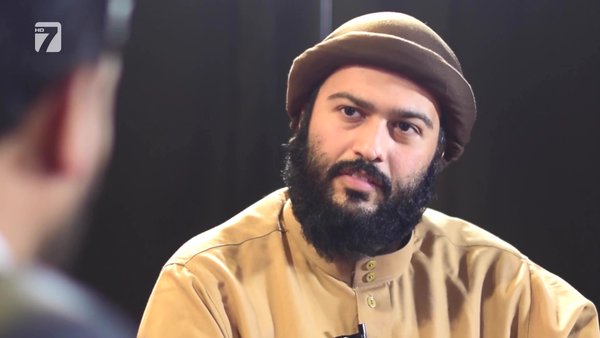ِAbu Abdurrahman Abdurrazzaq al-Mahdi
He originates from Damascus’s Al-Salihiyah district and was born in 1961.
When al-Mahdi graduated from the Islamic shar’i college, he started working in verifying religious books (tahqiq). He was appointed as an imam and preacher for several mosques in Damascus and its rural areas. He was coerced to pause preaching and studying more than once due to security reasons.
For a short period of time al-Mahdi had left Syria for Tunisia, were he engaged in preaching and teaching activities. After the commence of jihad in Syria, he returned to his country to support the mujahidin in their uprising. He responds to the question fighters and ordinary civilians, delivers sermons of advice and incitement to the mujahidin and locals and provides Shariah lessons. The shaykh intermittently hosts a program answering questions concerning Islamic rulings called “Fatawa min ardi al-Sham“.
Activities of the Abdul Razzaq al-Mahdi in revising books were concentrated on the subject of Hadith, particularly the fields of Takhrij (researching variants of the hadith), Tashih (authentifying hadiths) and Tadyif (classifying to be “weak”).
Tafsir
- Tafsiru’l Qurani’l Azim by Ibn Kathir, 5 volumes
- Tafsiru’l Qurtubi, al-Jami’ li’l-Ahkami’l Quran, 10 volumes
- Tafsiru’sh Shawkani, Fathu’l Qadir; 5 volumes
- Ahkamu’l Quran by Ibn al-Arabi; 4 volumes
- Tafsiru’l Baghawi; 5 volumes
- Tafsiru’l Kashaf by Zamahshari; 5 volumes, including an Appendix
- al-Bahru’l Muhit by Abu Hayyan; 8 volumes
- at-Tashīl by Ibn Juzayy; 2 volumes
- Adwau’l Bayan by al Shanqiti
- Fathul Bayan by Sadiq Hasan Khan
Islamic sciences
- at-Tamhid by Ibn Abdilbarr
- Fathul Qadir by Ibn Humām; 5 volumes [Hanafi fiqh]
- al-Lubāb; 3 volumes [Hanafi fiqh]
- al-Uddah Sharhul ‘Umdah
- ar-Rawdul Murabba’
- Bidāyatul Mujtahid by Ibn Rushd (Averroes)
- al-I’tisam by al-Shātibi
- Fathul Majid
- Shariah by Ajuri
- Tarikhul Madina by Ibn an-Najjar
- Zadul Ma’ad by Ibn Qayyim
- Talbisu Iblis by Ibn Jawzi
- Mukthasar Zadul Ma’ād and Mukhtasar as-Sīrah by Muhammad ibn Abdulwahhab
Miscellaneous
- Kitabu’l Adhkar by an-Nawawī
- ar-Rihlatu fi talabil hadith by al-Khatīb al-Baghdadi
- al-Khatim by al-Bayhaqī with an introduction
- Muwatta; 4 volumes revision with a lengthy and detailed takhrij of the hadiths, especially those concerning balaaghah, mursal ones and mawqufhadiths considered marfu’ along with a beneficent commentary. It has not been printed later.
adopted from the Wikipedia article to which I had contributed this part

